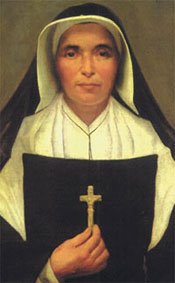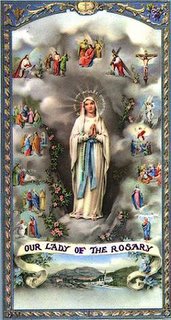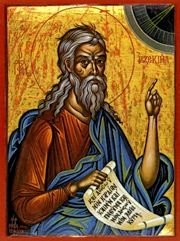When recently paging through an issue of Time magazine recently (I don't recall the issue date, it was a patient waiting room) I came across an article on embryonic stem cell reseach. One picture I saw irritated me greatly. A woman protesting legislation which would ban federal support of embryonic stem cell research bore a sign which read "MY FAMILY VALUES GOOD SCIENCE." Do you see what is wrong with such reasoning? ... think about it....There is a presupposition at work here. The phrase "family values" here is invoked presumedly to attack the "Christian Conservative" position. Christian conservatives (who oppose embryonic stem cell research) not only fight for "family values"... but they are also those same ignorant slobs who think that the theory of evolution should be banned from being taught in schools, for example. Time and time again, those pesky Christians oppose "good science." If we only obeyed "good Science" then we would be able to find all of these cures to terrible diseases such as Parkinson's Disease. But, those pesky Christians want to force their beliefs on everyone, and therefore, they stand in the way of life saving cures. [Notice how "Science" is invoked almost like a religion by some... it's authority and power is not to be questioned, and it will solve all of our problems and bring about salvation.]What is wrong with this reasoning? Just because we can accomplish something through science does not mean that we should do so. Science explains how the world works and how we can manipulate it for some desired end. Science, however, does not answer the question of whether or not it is ethically right to do so. Might does not make right--what is true in politics, is also true in technology. If we could find cures to terrible diseases by conducting painful and lethal experiments on convicted felons, for example,... should we do it? No, there would be no question. It should be clear that all scientific innovations require ethical inquiries.How then do we ask these ethical questions? By appealing to religious faith? Well, as individuals, this is important. Can we do that in a pluralistic society where people have different beliefs? In fact, we do not need to be Christians to know that stem cell research is unethical. It is important to remember that the Catholic Church teaches that we can also evaluate moral decisions through the natural law... the use of reason.The following is an excerpt from the fine article by our local Ordinary Archbishop Jerome Hanus, OSB published in the Oct. 8 issue of the Archdiocese of Dubuque paper The Witness: " 'Bald eagles, the living symbol or national freedom, spirit, and pursuit of excellence, have protection by law from those who would kill or harm them. In the United States, we have a stringent federal law, the Bald Eagle Protection act, passed in 1940, that protects not only the national bird, the bald eagle, but also that bird's eggs. If you chanced upon some of those eggs in a nest out in the wilderness, it would be illegal for you to destroy them. If you did so, you would suffer the same penalties and sanctions as if you had shot the adult bird out of the air. By the force of law, we acknowledge the scientific truth that the eagle's egg (that is to say, the embryonic eagle inside the egg) is the same creature as the beautiful bird that we witness flying overhead. Therefore we pass laws to safeguard not only the adult but also the very youngest of the species. Even atheists can see how a bald eagle's eggs ought to be protected; it's not a religious question at all. If bald eagles are valuable (in this case for pragmatic reasons of conservation), then it is right and fitting to protect them at all stages of their existence. The same logic holds for humans, who are valuable nor for pragmatic reasons but for intrinsic reasons... ' ""Good science" now tells us that human life begins at conception. An embryo is destroyed when it's stem cells are extracted for biomedical research... and that destroyed human embryo is a destroyed human life. Period. We must also remember, that "good science" has not shown that any cures have come from embryonic stem cell research. So far, progress has only come from adult stem cell research (which is permissible under Catholic teaching). A caller on National Public Radio last week said that she favored "humans who are alive on earth right now" over "potential human life" (I am paraphrasing). I became frustrated again: the human embryo IS human life "alive on earth right now" just as much as you and I. Do not get me wrong: I sympathize with those who want cures for terrible diseases. But do we want to go down this road? Do we want to begin to harvest human embryos and sell them at top dollar to research labs... do we want to make a commodity out of human life? Yes, it is about the principle... Without basic ethical/moral principles,... we will go down any slippery slope towards greater and greater evil.------------------------------------
From the new Compendium of the Catechism of the Catholic Church:
472. Why must society protect every embryo?
The inalienable right to life of every human individual from the first moment of conception is a constituitive element of civil society and its legislation. When the State does not place its power at the service of the rights of all and in particular of the more vulnerable, including unborn children, the very foundations of a State based on law are undermined.
-------------------------------------
Related Links:
The Coalition of Americans for Research Ethics:
http://www.stemcellresearch.org/
US Bishops' Q&A on Stem Cell Research and Human Cloning:
http://www.usccb.org/prolife/issues/bioethic/index.htm
Michael J. Fox is deceived on embryonic stem cell research:
http://www.lifesite.net/ldn/2006/nov/06110106.html
Cloning an Affront to Human Dignity (Cardinal Pell):
http://www.catholicnewsagency.com/new.php?n=7969
Labels: embryonic stem cell research, moral teachings, pro-life




